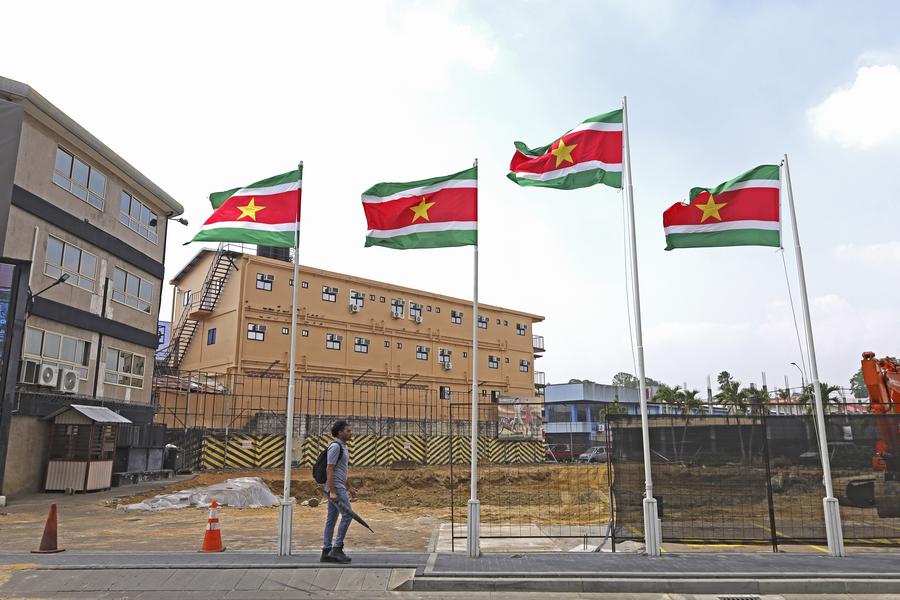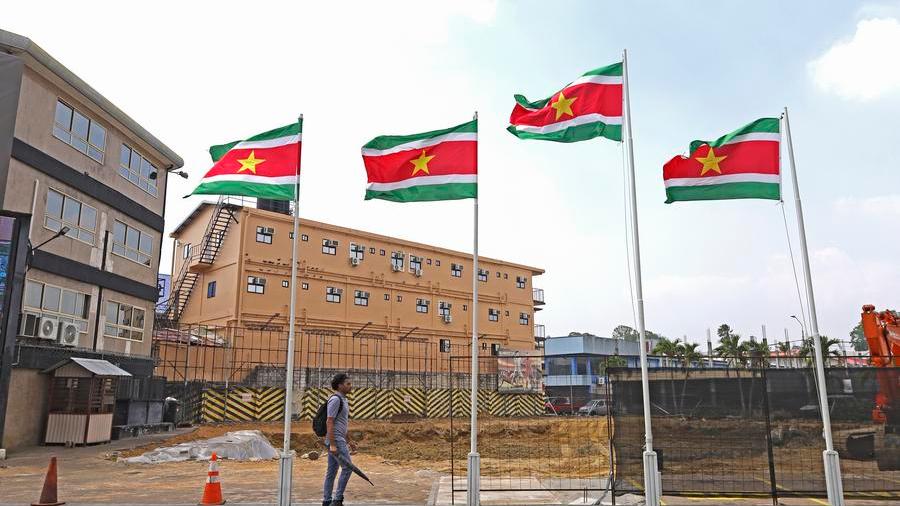This photo taken on April 8, 2024 shows a street view in Paramaribo, Suriname. (Photo by Ricardo Montoya/Xinhua)
"I think it was a very good opportunity for them to see how things work in China and what lessons they could learn and what experiences could be implemented in Suriname."
PARAMARIBO, April 11 (Xinhua) -- The rural microgrid photovoltaic project, undertaken by Power Construction Corporation of China (PowerChina) in Suriname, is in line with the country's energy strategy and has improved the lives of people in disadvantaged inland areas, said Suriname's Minister of Natural Resources David Abiamofo.
In a recent interview with Xinhua, Abiamofo explained that energy supply in inland areas relies on the government to provide diesel fuel.
"Most inland villages only have electricity for a few hours a day. Therefore, continuous power supply, or 24 hours per day and seven days per week, is very important," he said.
To meet the urgent needs of the Surinamese people, PowerChina signed a contract with Suriname's Ministry of Natural Resources in September 2019 for the first phase of a microgrid photovoltaic project in the villages of Goejaba and Pikin Slee.
In May 2020, the first rural microgrid photovoltaic project was officially put into operation, which solved the electricity problem in nearby villages. In October 2021, the second phase of the project was launched.
Abiamofo noted that the demand for electricity in 50 inland villages in Suriname will be met with this project.
Currently, Suriname is one of the three carbon-negative countries in the world, Abiamofo said, adding that the South American country strives to provide renewable energy whenever possible.
Noting that half of Suriname's energy mix is hydroelectric, Abiamofo said "our goal is to make sure that our footprint becomes increasingly ecological."
He recalled that last year the energy department of the Ministry of Natural Resources organized a training session in China, in which some 20 officials received training in the Asian country.
"I think it was a very good opportunity for them to see how things work in China and what lessons they could learn and what experiences could be implemented in Suriname," he said.
Suriname has abundant mineral resources, especially gold and bauxite, and that is why both countries have great potential for cooperation in the sector, Abiamofo noted.
"How to reduce the impact of mining on the environment is a strategy that both parties can discuss and develop together," he said.





 A single purchase
A single purchase









